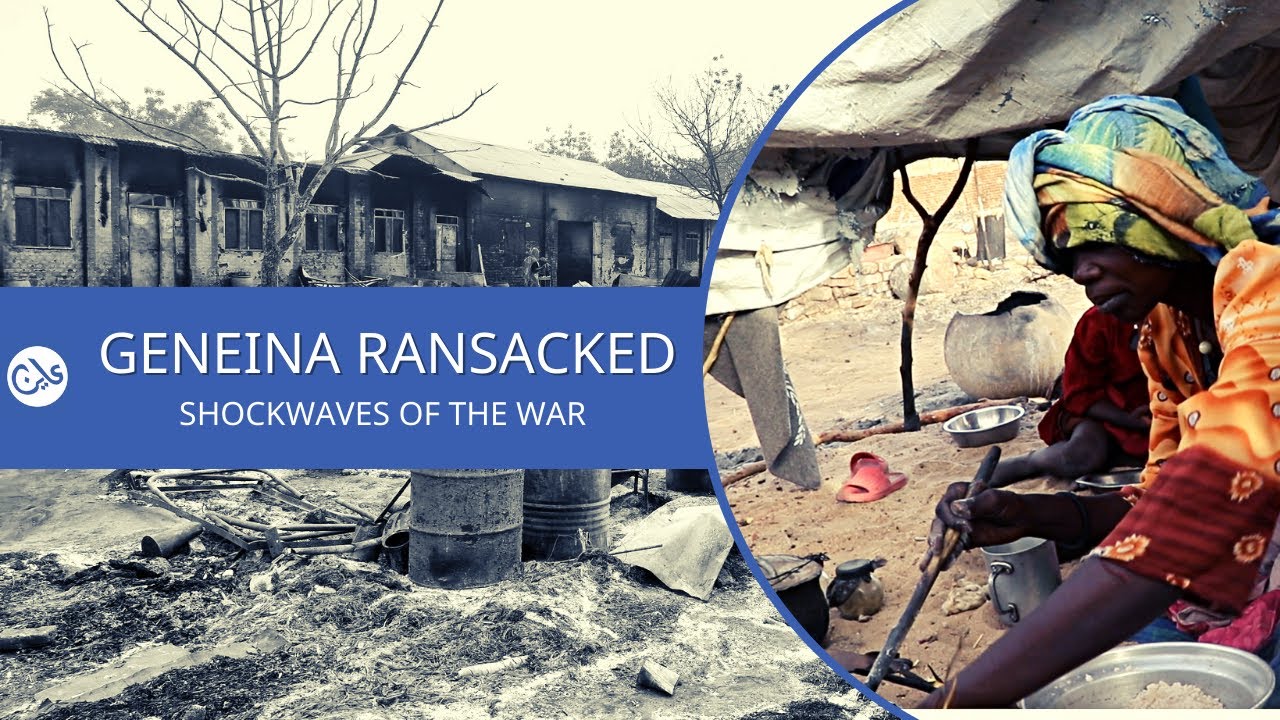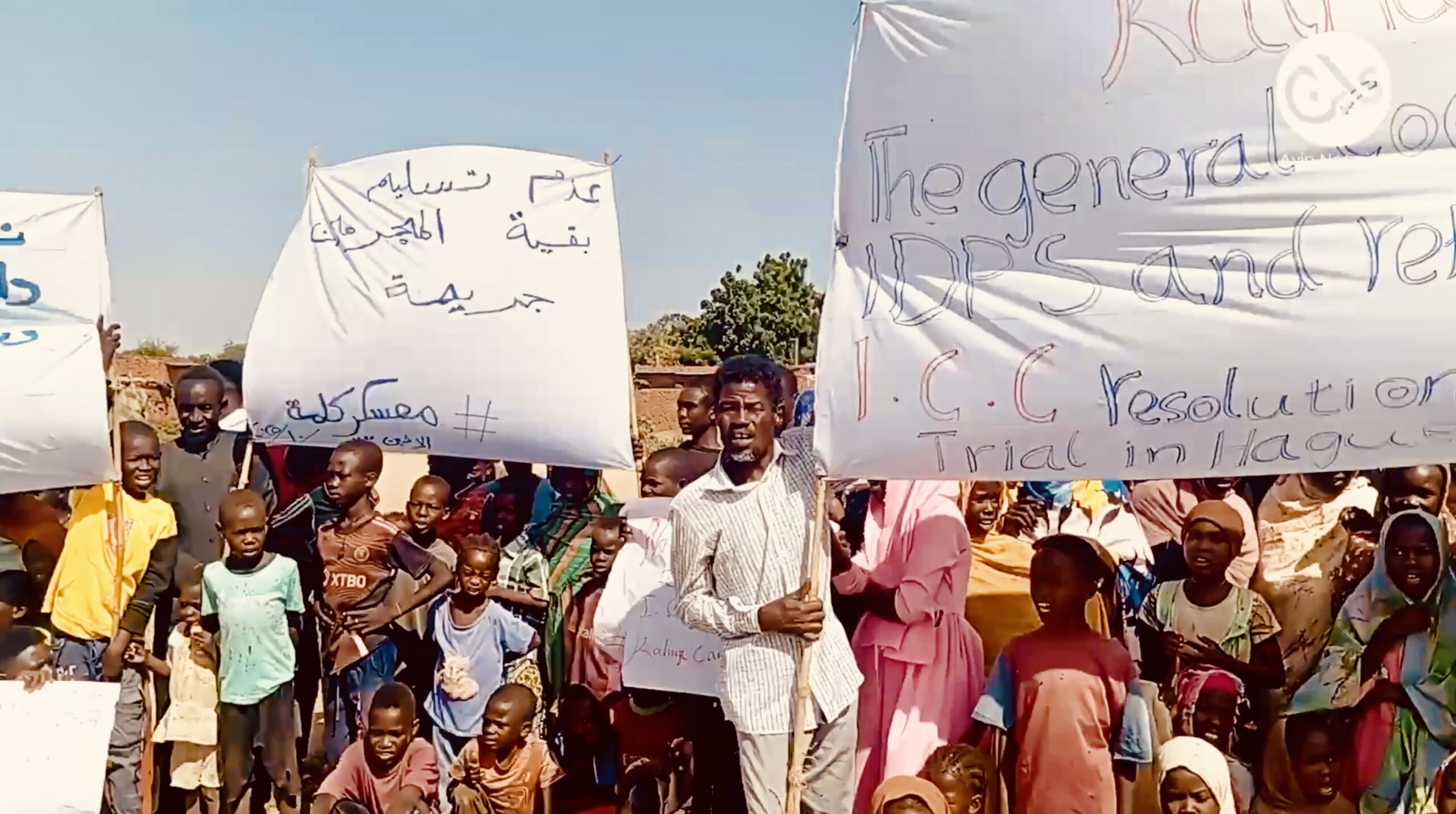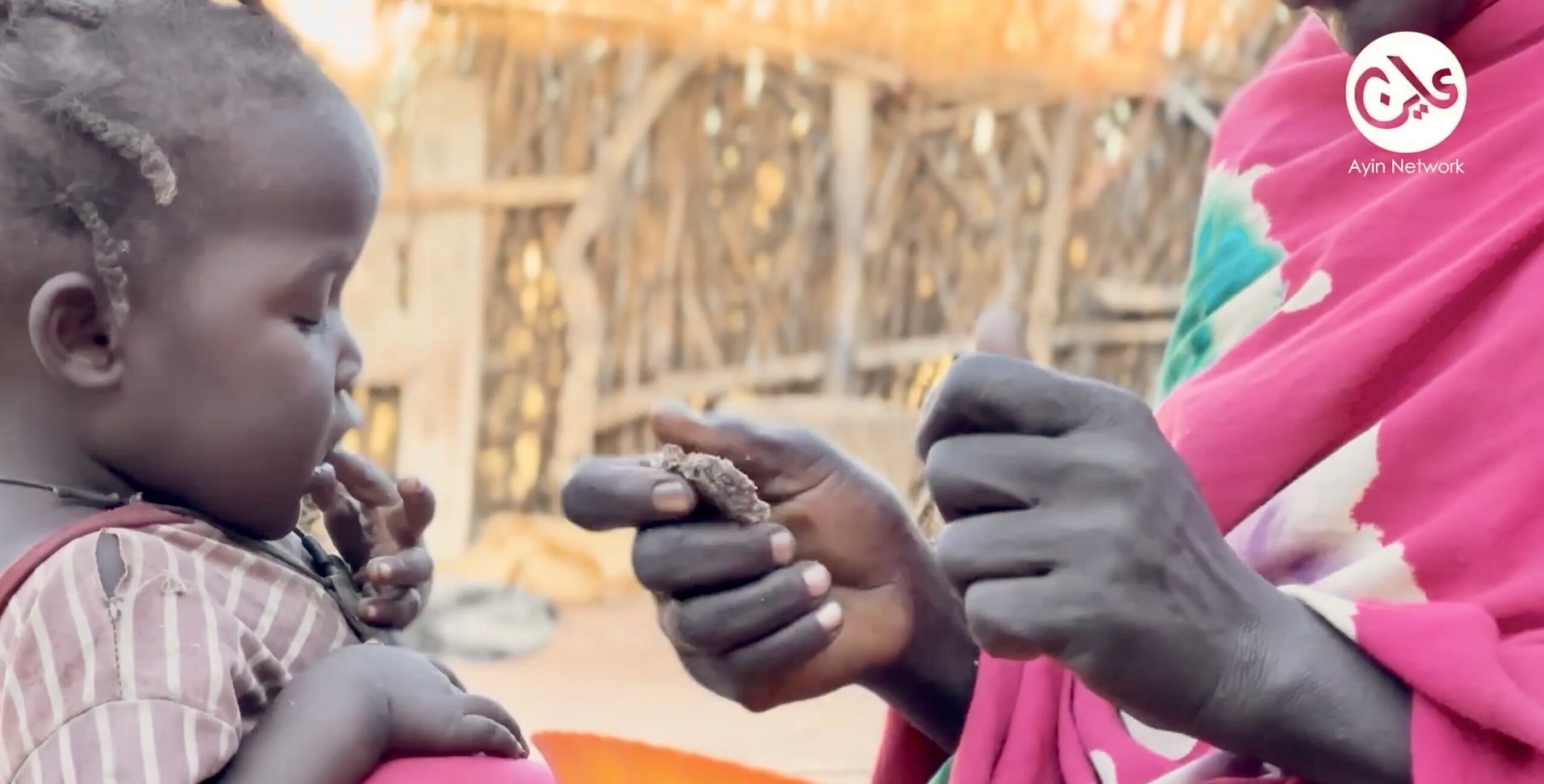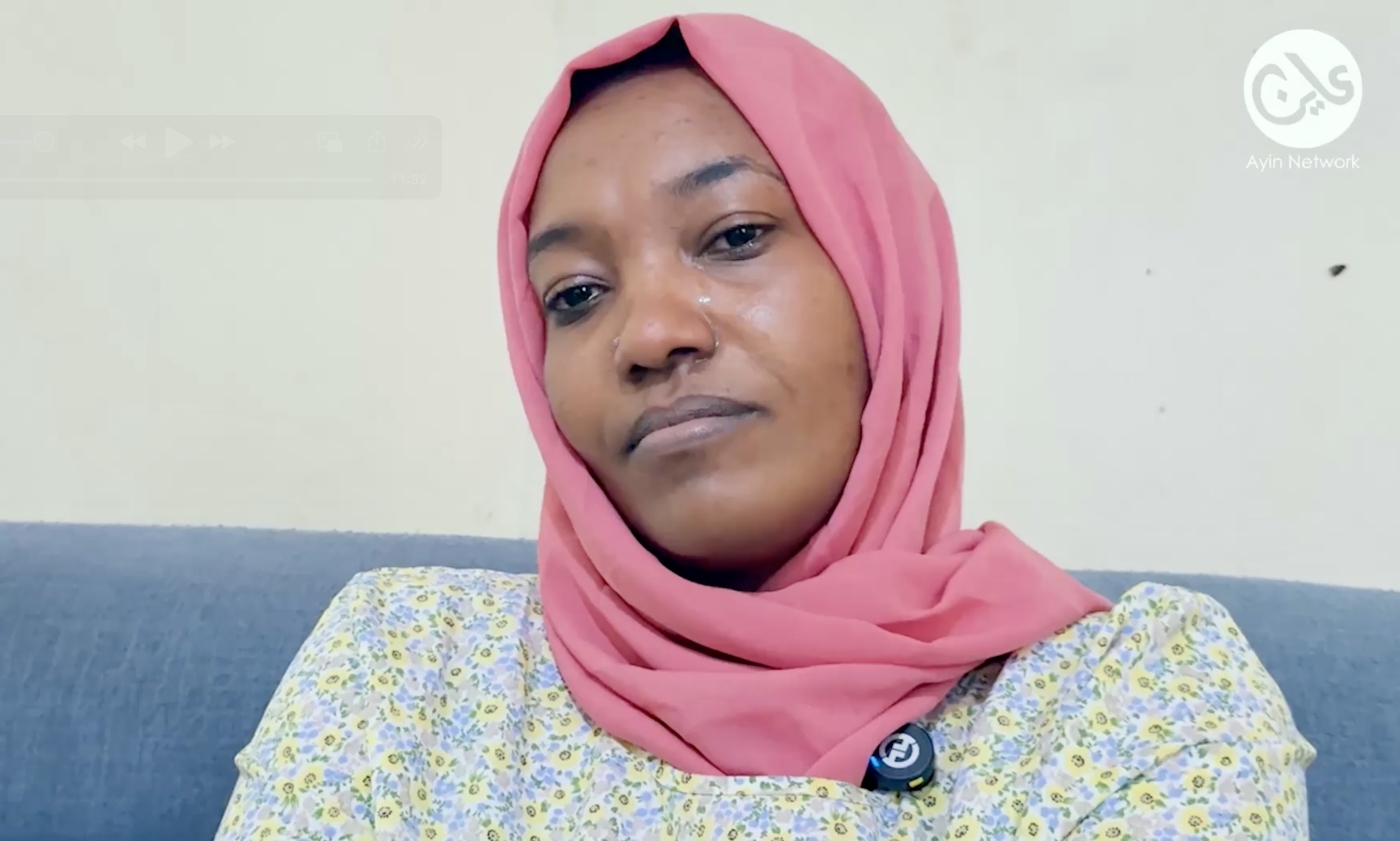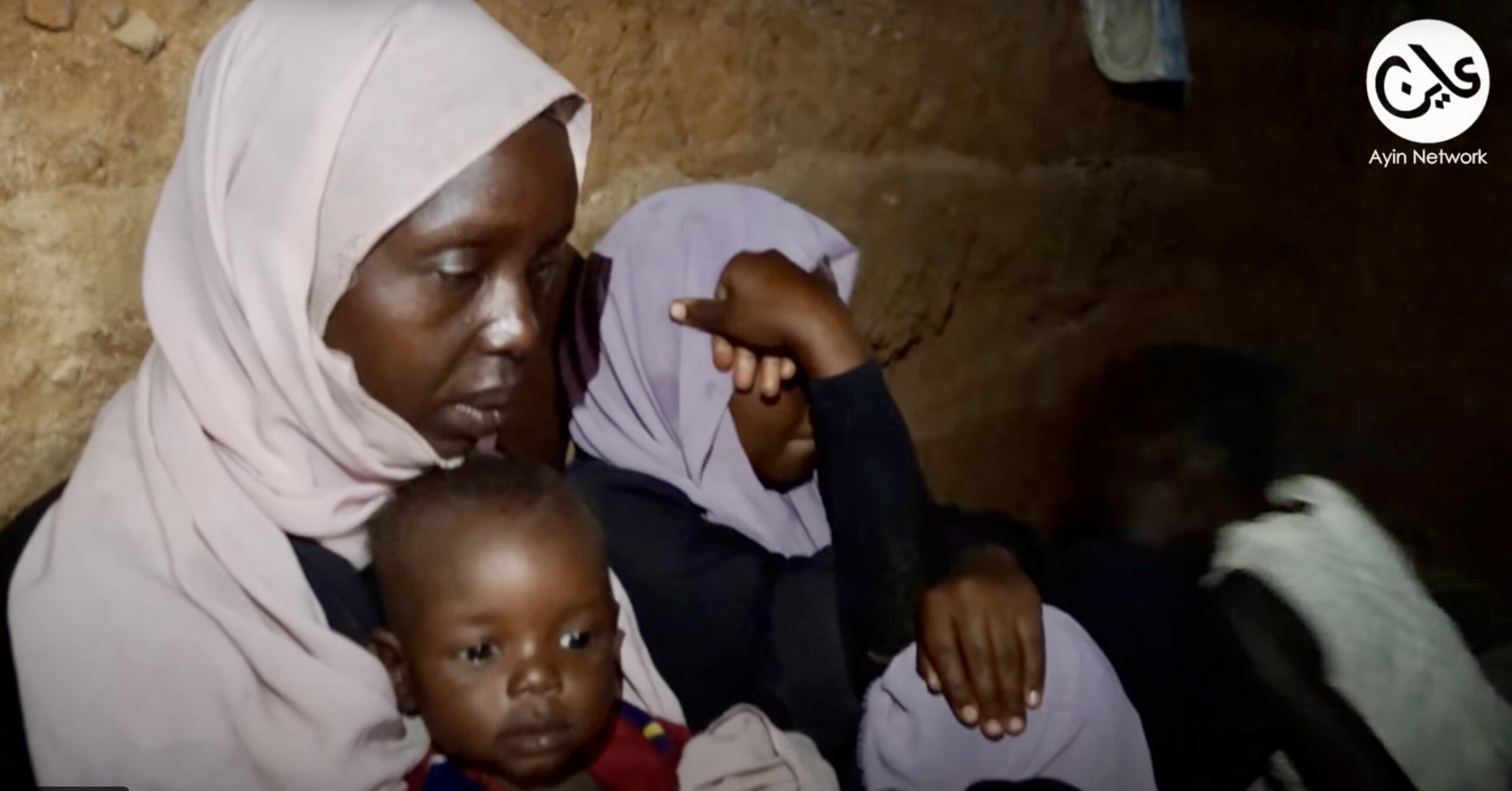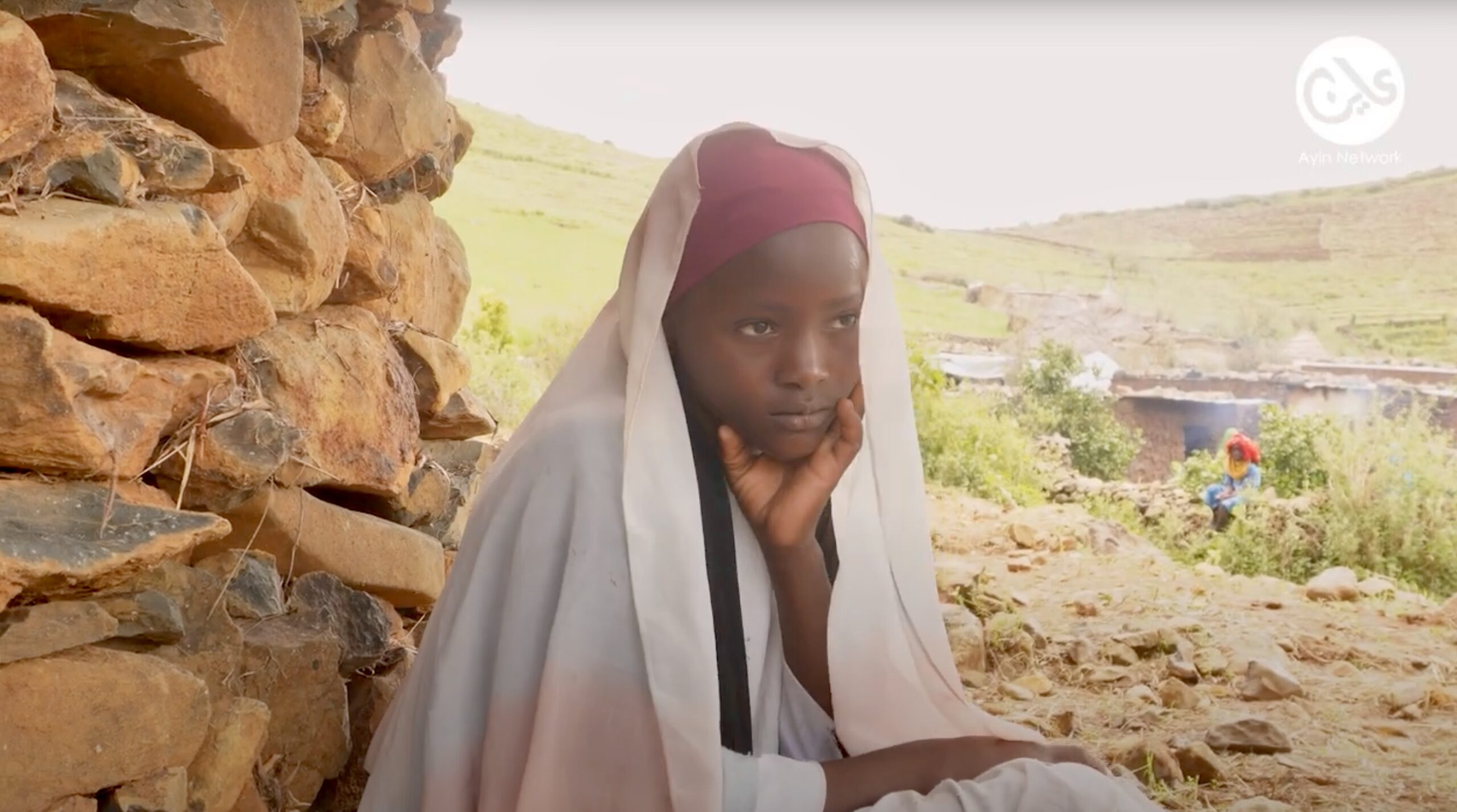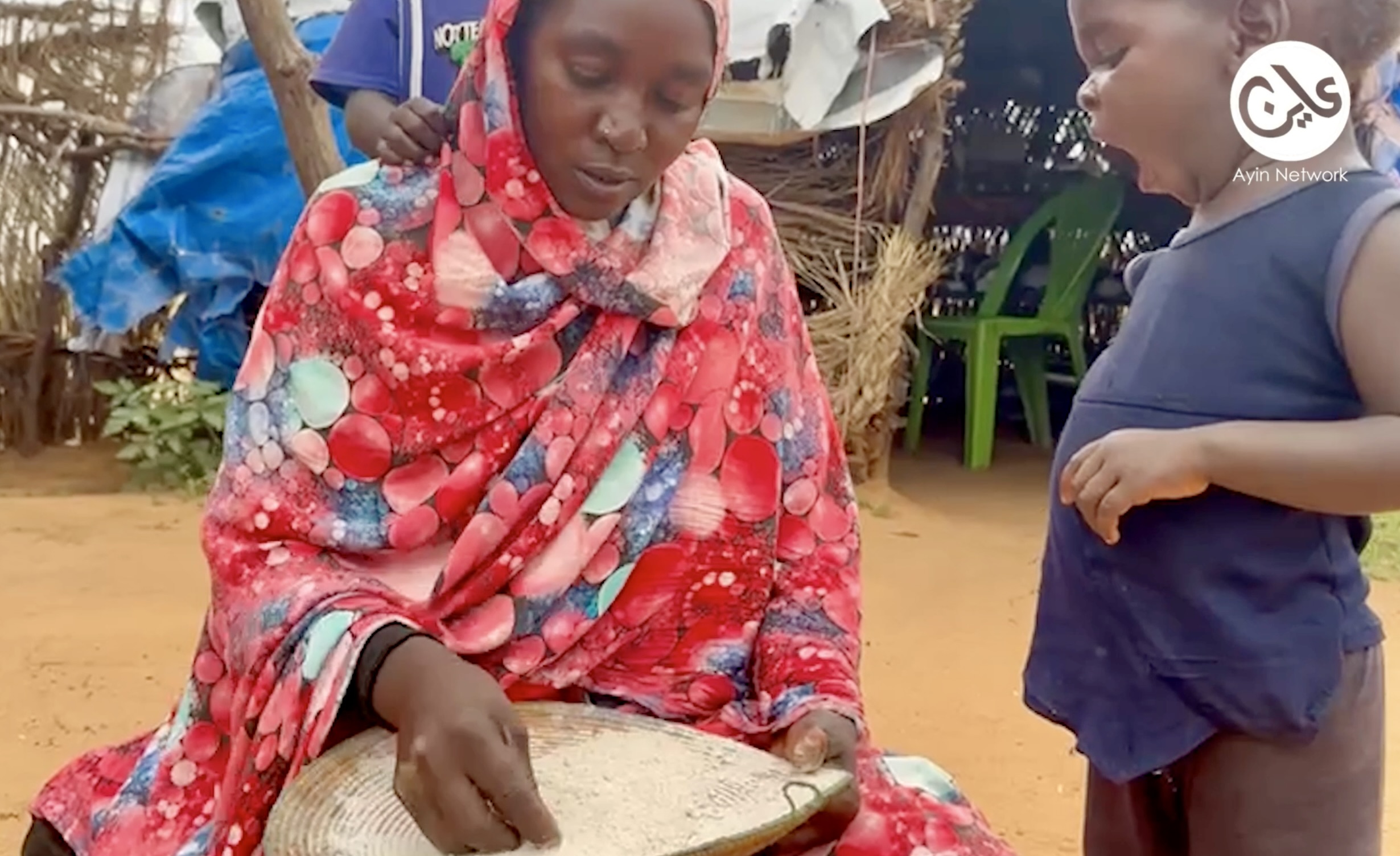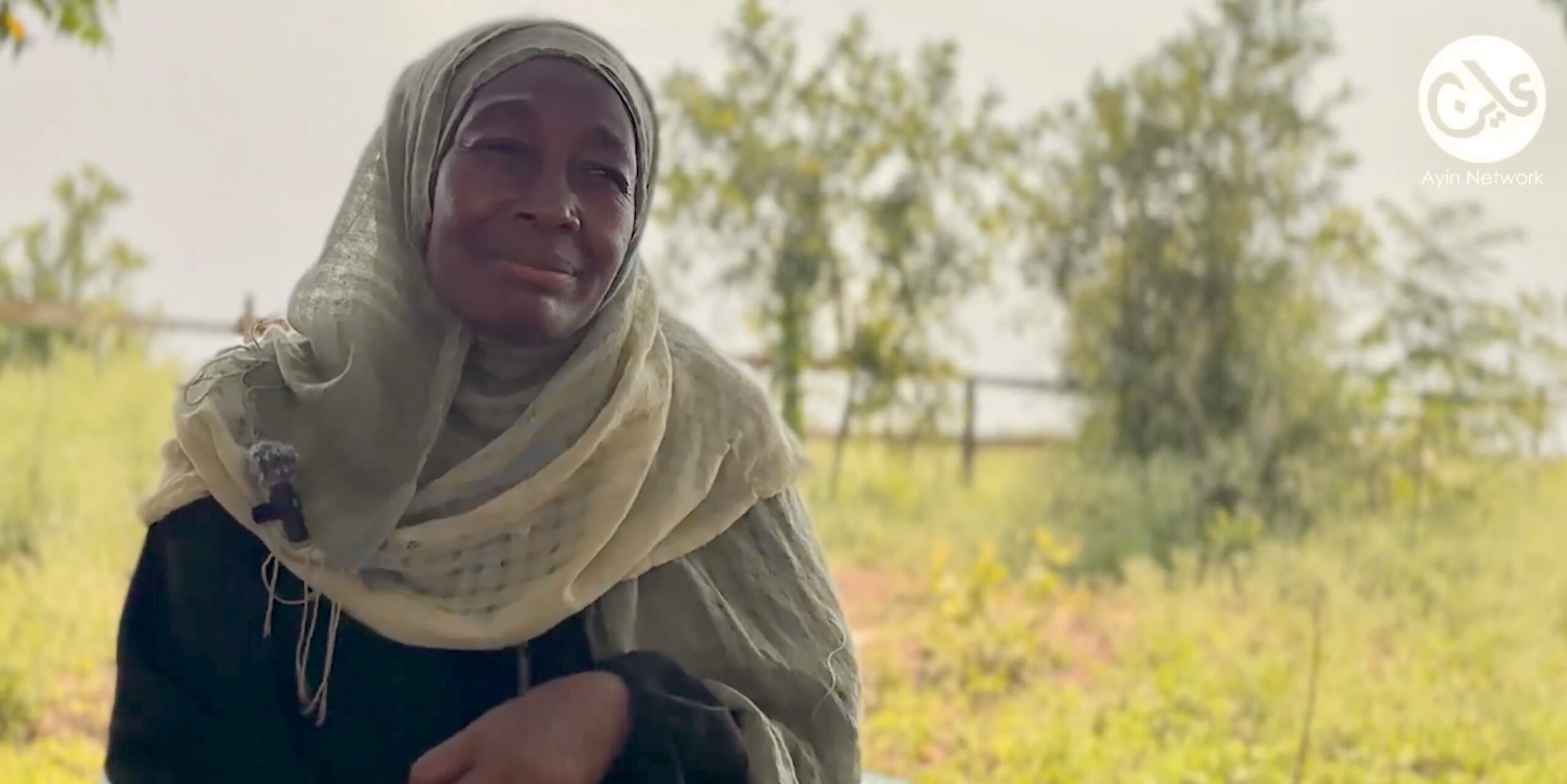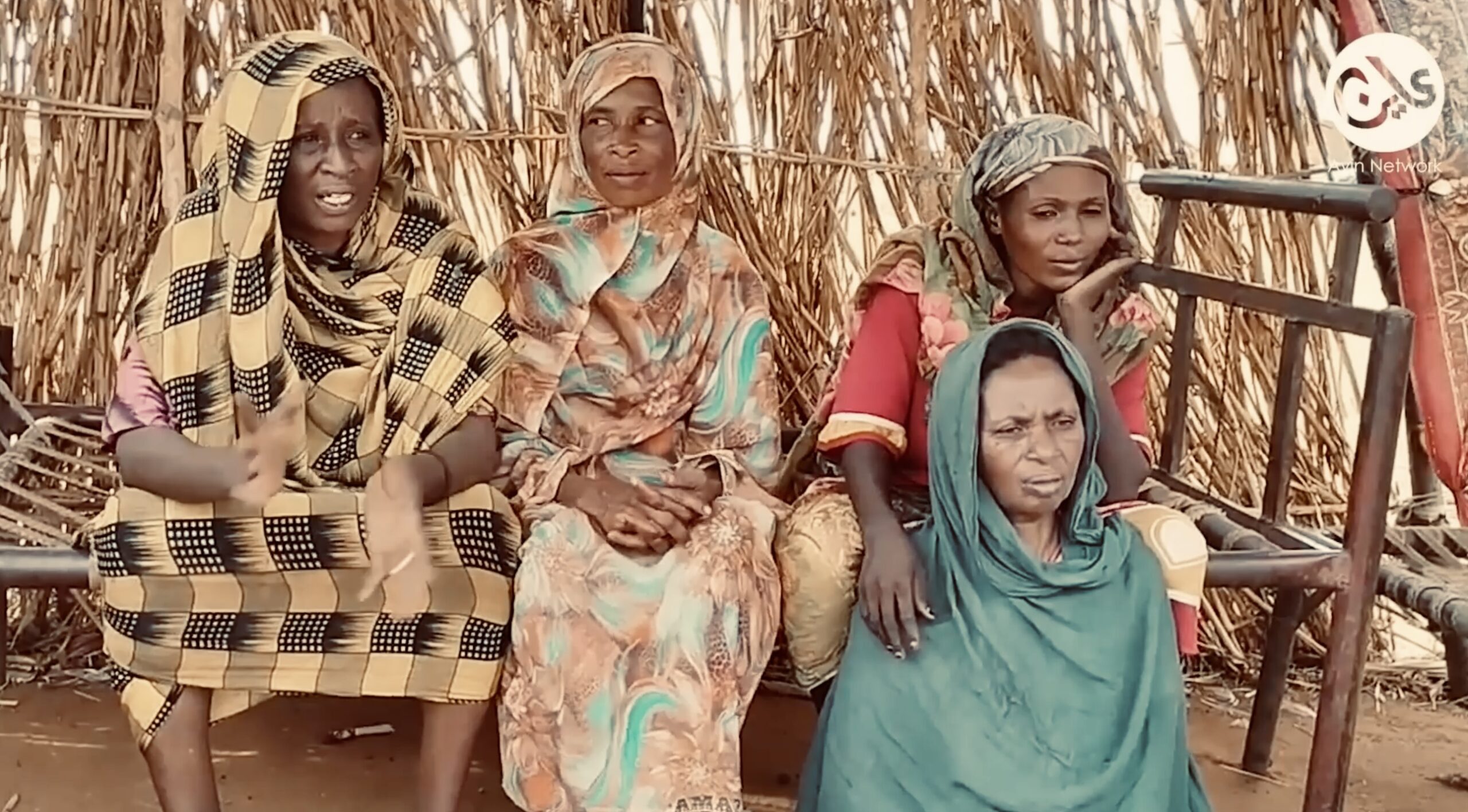Geneina ransacked, shockwaves of the war
This article was originally published in the pan-African online magazine, The Continent
7 May 2023
By the end of April, relative calm finally reached the restive capital of West Darfur State, Geneina, after residents told The Continent they experienced one of the most intense weeks of destruction. Geneina residents are now living in a shell of a town, with looted shops, empty government buildings, and the stark absence of any security forces to protect them.
As most eyes focused on the ongoing conflict in Sudan’s capital, Khartoum, at least 10 other towns across the country have experienced fighting after a war of dominance erupted on 15 April between Sudan’s security forces.
While each side has denied culpability, the conflict between the national army, the Sudan Armed Forces (SAF), and the powerful paramilitary unit, the Rapid Support Forces (RSF) has killed at least 528 people and dispelled the hopes of many Sudanese to obtain democratic, civilian rule.
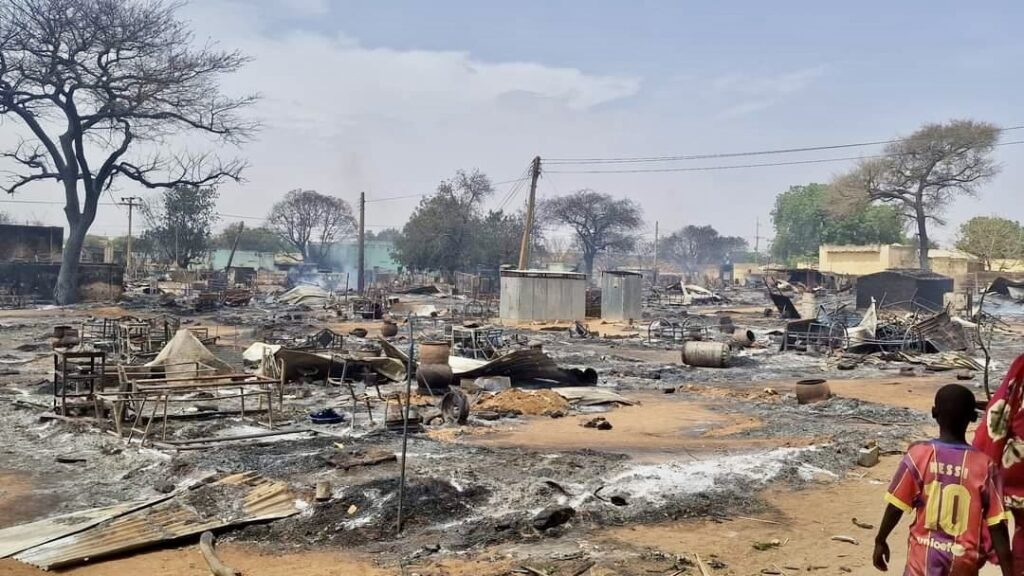
Geneina’s week-long war
In Geneina’s case, the conflict really sparked off in the morning of 24 April, as residents woke to gunfire and a huge plume of smoke over Geneina’s El Jamarik neighbourhood that quickly spread to the city’s main police station.
The next day, residents said Arabic tribes aligned to the RSF attacked the internally displaced camps, burning the shelters to the ground and then targeting other areas. Musa Haroun, one of the leaders of the displaced in the Aba Dhar camp, confirmed that the gunmen attacked gatherings of the displaced in the city center and burned them completely, forcing thousands of civilians to flee across the border to Chad. Without any police or other security forces in the capital city, Haroun added, the armed militias were emboldened to invade the city market and government institutions in an unprecedented manner.
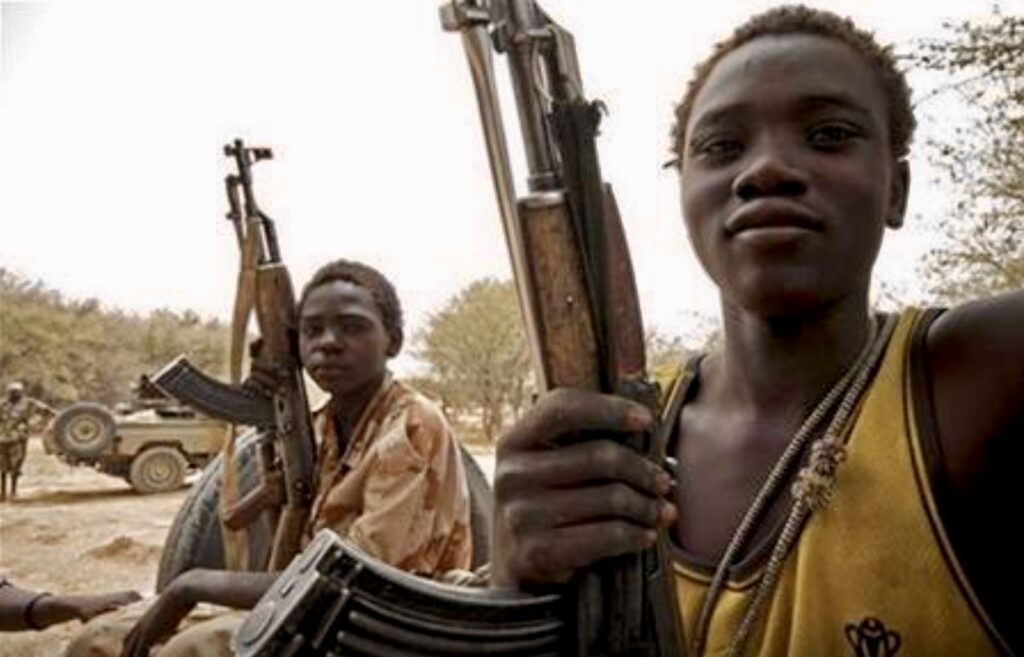
“Children are carrying arms”
Outmanned and ill-equipped, local police called on civilians, particularly the Masalit from displaced camps, to arm and defend themselves against the RSF-aligned militias. This recent arming takes place as the RSF, and the previous regime armed Arabic nomads in Darfur to counter rebel groups and seize arable land.
With the arming of civilians, residents say, regular people have become active participants in the wider conflict. “Children are carrying arms,” said Inaam El Nour, a Geneina resident and Director of the Women for Change organisation. El-Nour says she understands why the police armed civilians but also fears the long-term consequences. With no support from the central government to provide security for citizens, she added, arming civilians may have been the only alternative. But now the streets are awash with arms and the citizens of Geneina live on tenterhooks, increasingly wary of one another.
“The West Darfur region had an ongoing conflict even before the current conflict between the Rapid Support Forces and the army,” says a Darfur-based lawyer and human rights activist who requested anonymity. The two warring parties support certain ethnic groups in this regional conflict, he added, that have helped stoke the flames further. “This is the real danger –-if the army and RSF continue to arm and pit citizens against one another, the whole social fabric can collapse.”
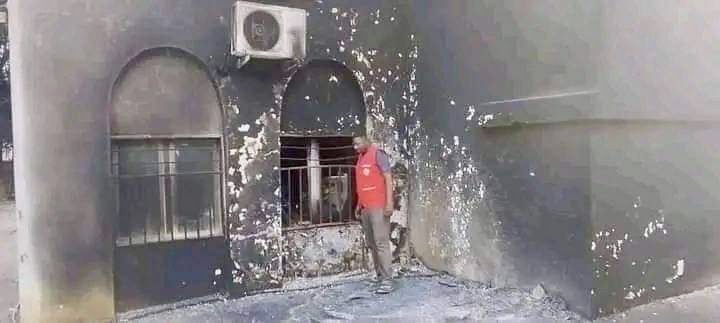
Geneina, a wilder west
A local doctor’s union estimated 191 people died in the fighting last week, but residents say the number continues to grow as injured civilians succumb to untreated injuries. “The health situation is catastrophic,” says Dr Tahani al-Habeeb, “there are no health services.” The city’s main hospital, Geneina Teaching Hospital, has been out of service for 10 days after mass looting. The hospital has been a lifeline for Geneina residents but also patients across the country, said Sylvain Perron, deputy operations manager for the international medical charity, Médecins Sans Frontières (MSF). Perron said MSF had to stop all activities in the state except for in neighbouring Kereinek Hospital.
“They robbed [Geneina Teaching] hospital, including the blood banks and x-ray laboratory –-the ministry of health was burnt down, cars stolen –even the doctors’ living quarters and cars were not spared,” Dr. Tahani added. “They have destroyed the entire health sector completely.” The lack of medical equipment has led to around 6 to 7 people dying daily from blood loss, El-Nour said.
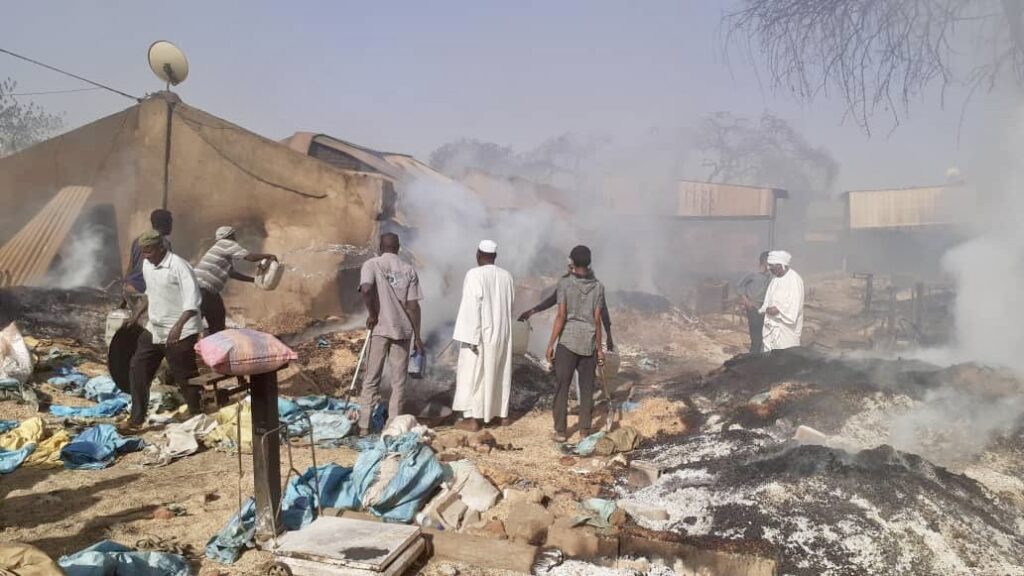
Everyday life struggle
The sound of gunfire has diminished in Geneina, but few residents venture into the streets, defying a pressing need for food and water. Water relies on an electrical supply in Geneina, residents said, and both remain suspended since the conflict started. While most markets remain ransacked and abandoned, some smaller markets in the outer northern areas of Geneina are open. But reaching these basic markets poses a serious risk of being robbed by armed militias. Even worse, few Geneina citizens can afford even basic necessities amidst skyrocketing inflation. Prices of bread, for instance, have doubled, while purchasing a kilo of meat, resident Shifa Adam says, is quadruple the price.
“Going to the market to purchase even the most basic items is now a challenge,” admits Geneina resident Hassan Ali*. “Everyone treats you with suspicion […] they associate you with the armed groups even if you are just looking for bread.” Ali, an engineer with no affiliation to the warring parties, says other residents automatically link him to the RSF-aligned militias simply because he comes from one of the Arab tribes. The opposite, El-Nour says, is also true. RSF-aligned militias have targeted civilians from African tribes with no connection to the conflict. “Currently, anyone with a dark skin tone feels animosity towards lighter tones and vice-versa,” El-Nour added. Some residents fear this toxic distrust and ongoing looting in El-Geneina may spread across the region. “After looting Geneina town,” Adam says, “what will stop these militias from targeting other places and inciting further conflict?”
But many residents also believe the conflict is being fuelled by outside political forces and recall a more harmonious past between Geneina’s diverse communities. “These conflicts are fabricated and made more chaotic than necessary,” Shifa Adam added. Haroun Muhammed, a resident of the Al-Salam neighbourhood in Geneina, a place where the conflict displaced have sought shelter, is convinced state actors fuel the conflict to achieve temporary, personal gains at the detriment of the citizenry. “Since the beginning of the conflict, all security services disappeared –it’s as if they wanted a conflict to burn all the neighbourhoods in the city.”
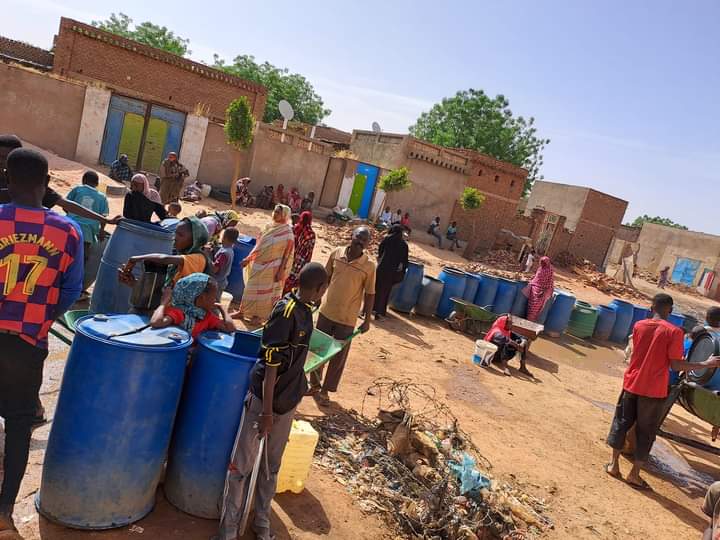
Local solutions
Acknowledging that outside actors are behind the conflict, analysts say, might be the first step in quelling tensions and see Geneina follow suit with other major Darfur cities that have kept the peace. Recent locally negotiated ceasefires have taken place in three Darfur capitals, El-Fasher, Nyala, and al-Daem. According to residents of Sudan’s second-largest city, Nyala, South Darfur State, Nyala remains relatively stable with a reduction of looting except in some areas north of the city. “In El-Fasher and Nyala local leaders with leverage were able to enact these ceasefires and, most importantly, make them hold,” says Kholood Khair, managing partner of a Sudan-based policy think tank. “We are not seeing this in Geneina because the successive rounds of recent fighting have upset the social balance there so much, that I am not sure any side can feasibly negotiate a ceasefire.” Nevertheless, Khair and others are hopeful the broader move towards negotiations both locally and now at the international level, may influence political and civil actors in West Darfur. The key, analysts say, is for Darfur to focus on local solutions and curb any Khartoum influence.




